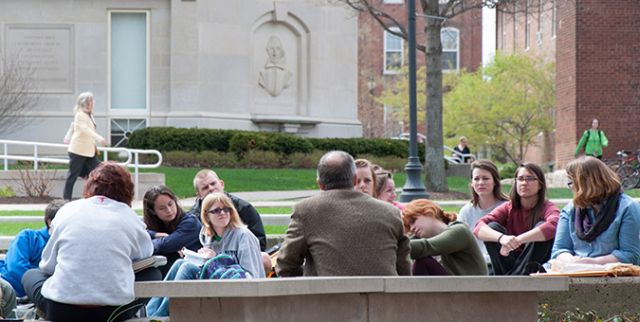
Philosophy Faculty Publications
Stoff and Nonsense in Kant's First 'Critique'
Document Type
Article
Publication Date
1-1993
Publication Source
History of Philosophy Quarterly
Abstract
Most philosophers, particularly those with idealistic tendencies, don’t talk much about being hit over the head with a baseball bat, which might in fact be good for them—talking about it, that is. For it is this kind of abrupt interaction with the external world that perhaps best brings out the motivation for various doctrines of the "given," in hopes of capturing that aspect of the world imposed upon us.
Peirce, for instance, talks in terms of "secondness" as that dimension of a thing that "jabs you perpetually in the ribs." C. I. Lewis refers to "the brute-fact element in perception, illusion and dream (without antecedent distinction)"; Sellars, in similar language, if not with similar results, mentions "the 'brute-fact' or constraining element of perceptual experience." Finally, in a discussion of Lewis' reading of Kant, Lewis White Beck speaks of "the hard coercive ness of independent factuality."
What these different philosophers, in their different ways, are getting at is the acknowledgement of a world existing independently of thought; that aspect that within metaphysics is characteristic of "realism." Clearly enough, this is a problem that quickly confronts any metaphysical view that qualifies as idealistic. Kant, of course, referred to his system as transcendental idealism, and occasionally as formal, or critical, idealism, a doctrine in which our knowledge of objects is systematically and necessarily connected with the contribution of the thinking subject. He was also, conveniently, one of the few self-proclaimed idealists who provided a refutation of idealism. Furthermore, he considered his version of idealism defensible only with its complement, empirical realism. But in any case, it is safe to say that Kant is an idealist of some stripe.
What I want to consider here is whether his tandem doctrines of transcendental idealism and empirical realism can satisfy our common sense realistic notions of being in a world we didn't create. Kant certainly thought they could; but if Sellars is correct in suggesting Kant as possibly the "first thorough going representationalist," can he also provide due comfort to what Quine calls our "robust sense of reality"?
Inclusive pages
21-36
ISBN/ISSN
0740-0675
Copyright
Copyright © 1993, North American Philosophical Publications
Publisher
University of Illinois Press
Volume
10
Issue
1
eCommons Citation
Mosser, Kurt, "Stoff and Nonsense in Kant's First 'Critique'" (1993). Philosophy Faculty Publications. 66.
https://ecommons.udayton.edu/phl_fac_pub/66
COinS



Comments
View the journal website.
Permission documentation is on file.